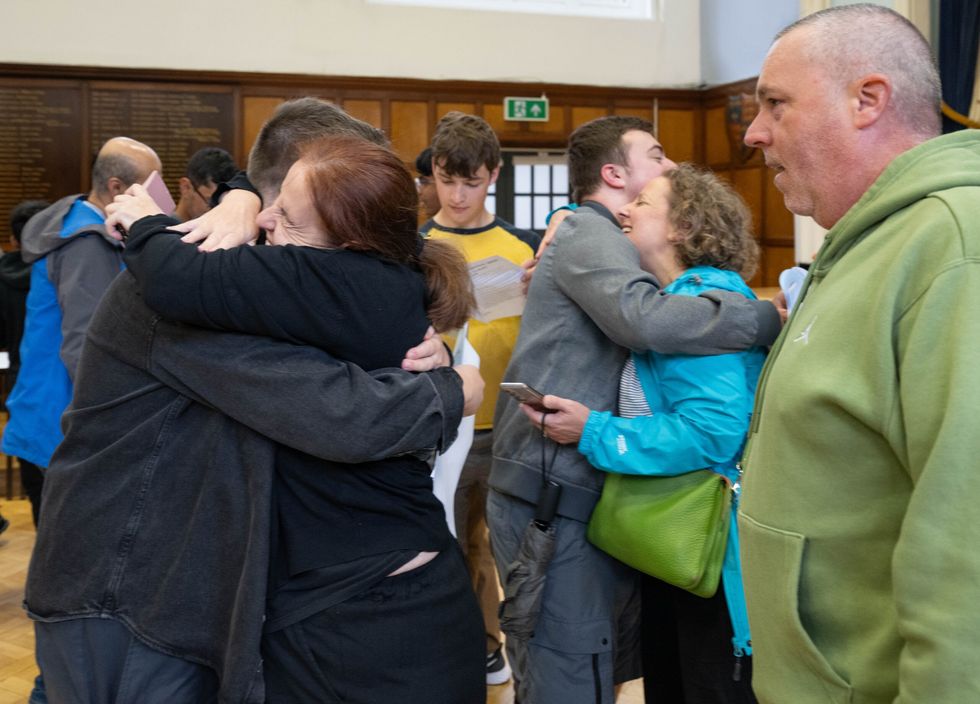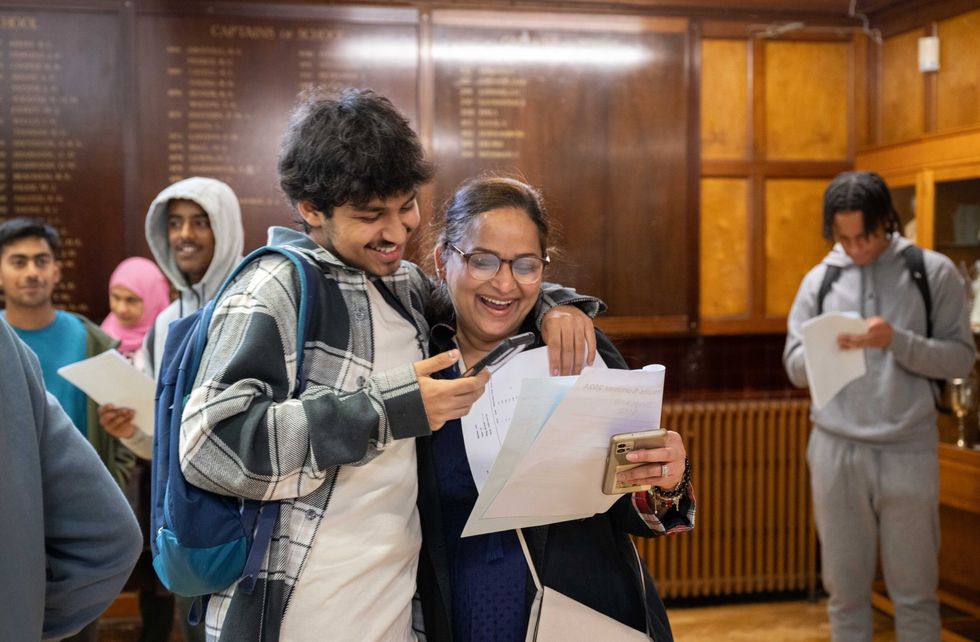THE proportion of top GCSE grades has slightly decreased, though it remains higher than before the pandemic.
Across England, Wales, and Northern Ireland, 21.8 per cent of GCSE entries received a grade 7 or higher, equivalent to an A in the old system. This is a small drop from last year's 22 per cent but still above the 20.8 per cent seen in 2019, despite efforts to curb pandemic-era grade inflation.
Meanwhile, the pass rate has declined for the third consecutive year, with only 67.6 per cent of all grades achieving a 4/C or higher.
This year marks the first return to pre-pandemic grading standards across all three nations as more than a million students are celebrating their GCSE and vocational qualification results on Thursday (22).
In England, the percentage of top grades edged up slightly to 21.65 per cent, compared to 21.61 per cent in 2023. With a 4.7 per cent increase in the number of students sitting exams, England actually saw nearly 58,000 more top grades awarded.

However, both Wales and Northern Ireland experienced a decline in top grades. In Wales, the percentage of GCSE entries receiving grade 7 or above dropped to 19.2 per cent from 21.7 per cent in 2023. Northern Ireland saw a decrease from 34.5 per cent to 31 per cent, leading to 4,500 fewer top grades in Wales and 3,600 fewer in Northern Ireland.
Despite a slight overall decrease in the proportion of top grades, around 50,000 more exam papers received high marks this summer. Sir Ian Bauckham, head of Ofqual, noted that these consistent results indicate a return to reliable grading standards.
Schools Minister, Catherine McKinnell, however, expressed deep concern about the growing disadvantage gap, noting that students in areas like London and the South East tend to achieve more passes and top grades than those in the North East.
London and the North East continue to be the highest and lowest performing regions, respectively. The gap in grades 7 or above between these regions has remained steady at 10.7 percentage points for all age groups, up from 9.3 percentage points in 2019.
McKinnell stressed the government's commitment to leveling the playing field by hiring more teachers, funded by adding VAT to private school fees, introducing free breakfast clubs, and enhancing mental health support in schools.
“Our review of the curriculum will break down barriers and ensure art, sport, music and drama are no longer the preserve of a privileged few," the minister added.
Education secretary Bridget Phillipson, said, “We know this week’s results are likely to show the same unacceptable, entrenched regional disparities we have seen time and time again. That is why we are committed to breaking down barriers to opportunity – including by delivering a broader, richer curriculum – and ensuring that young people in all corners of our country can reach their potential,"

According to reports, private and grammar schools also widened their lead, with 48.4 per cent of private school entries and 60.3 per cent of grammar school entries receiving grade 7 or above, both showing slight increases from last year.
The gender gap in GCSE results has narrowed to its smallest since 2009, though boys still lag behind. Girls achieved top grades in 24.7 per cent of entries, down slightly from 24.9 per cent in 2023, while boys achieved 19 per cent, a small decrease from 19.1 per cent last year.
Certain subjects, including German, French, and Computing, saw the most significant increases in top grades.
Students celebrate at Queen Elizabeth’s School
Queen Elizabeth’s School, Barnet, has achieved its best-ever GCSE results as nearly two-thirds of all GCSEs received the highest grade.
As many as 65.8 per cent of the GCSEs earned a grade 9, marking one of three new records set by the boys’ state grammar school. The proportion of GCSEs awarded grades 8-9, equivalent to the former A* grade, also reached an all-time high of 86.2 per cent, while grades 9-7 rose to 96.3 per cent.
All 188 boys in Year 11 met the benchmark of at least five passes at grades 9-7, with strong performances recorded across all subjects, a statement said.

Headmaster Neil Enright said, “These are brilliant results from an impressive cohort who exemplify the School’s mission to produce ‘confident, able and responsible’ young men.
"They were in Year 7 when we had the first Covid-19 lockdown. Today’s results demonstrate their focus and determination during that difficult period and since, as well as the quality of provision they received. They have embraced all the opportunities that the QE experience offers and balanced a broad range of co-curricular involvements with the highest levels of academic accomplishment.”
Key results include 26 boys achieving straight 9s in all their GCSEs. There was a 6.4 per cent increase in grade 9s from last year and a 9.4 per cent rise compared to 2019. Grades 8-9 increased by 3.2 per cent from 2023 and by 6.8 per cent since 2019. Grades 9-7 rose by 2.9 per cent over the past year and by 5.5 per cent since 2019.
Enright added, “We have a very diverse pupil population, including many from modest socio-economic backgrounds. We aim to support them to reach the best universities, to thrive there, and to become leaders in their respective fields in their adult lives. They have shown that there should be no ceiling on that aspiration."


















